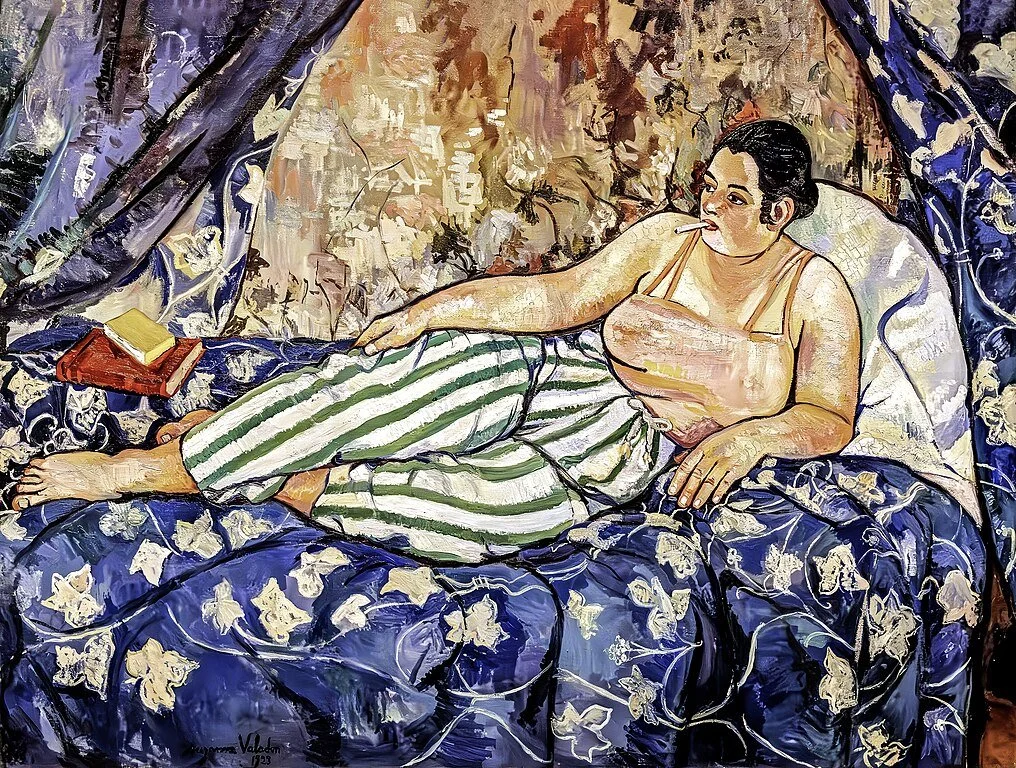Suzanne Valadon
Suzanne Valadon, La Chambre bleue, 1923 - Public domain. Photo credi : Centre Pompidou, MNAM-CCI/Jacqueline Hyde/Dist. GrandPalaisRmn
The Pompidou is the final stop of the touring exhibition Suzanne Valadon which opened Metz in 2023 and then travelled to Nantes and Barcelona. The first monographic exhibition on the artist since 1967, it showcases this exceptional figure and highlights her pioneering, but often underestimated, role in the birth of artistic modernity. It sets out to reveal the great freedom of an artist who did not really adhere to any particular movement, except perhaps her own.
The exhibition of almost 200 works draws on national collections as well as loans from the Metropolitan Museum of Modern Art in New York, the Fondation de l’Hermitage and major private collections complete the exhibition. It focuses on the artist’s two favourite media, drawing and painting, with particular emphasis on her graphic work, which is explored in depth through the presentation of a large number of drawings that have rarely been shown before.
The exhibition retraces the journey from the artist’s beginnings as the favourite model of all-Montmartre to Suzanne Valadon’s early artistic recognition by her peers and critics, bridging one century to the next, and embracing the Parisian fervour of the turn of the century, its cafés, bal-musettes and cabarets, and its many artistic, intellectual and societal revolutions. It reveals both her friendships and artistic connections with Bohemian painters, and her undeniable influence on the Parisian art scene thanks to the active support of her artist and gallery-owning friends. It also highlights the breadth, richness and complexity of her oeuvre, focusing on five thematic sections: Learning through observation, Family portraits, “I paint people to get to know them”, “The real theory is imposed by nature”, The nude: a feminine view. A selection of previously unpublished archives and works by her contemporaries with similar pictorial concerns, such as Juliette Roche, Georgette Agutte, Jacqueline Marval, Emilie Charmy and Hélène Delasalle, complement the exhibition.
The exceptional archive collection bequeathed to Centre Pompidou in 1974 by Dr Robert Le Masle, a doctor, art collector and close friend of the artist, containing many photographs, manuscripts and documents now housed in the Bibliothèque Kandinsky, provides a vital record of Valadon’s rebellious personality and early artistic recognition.
